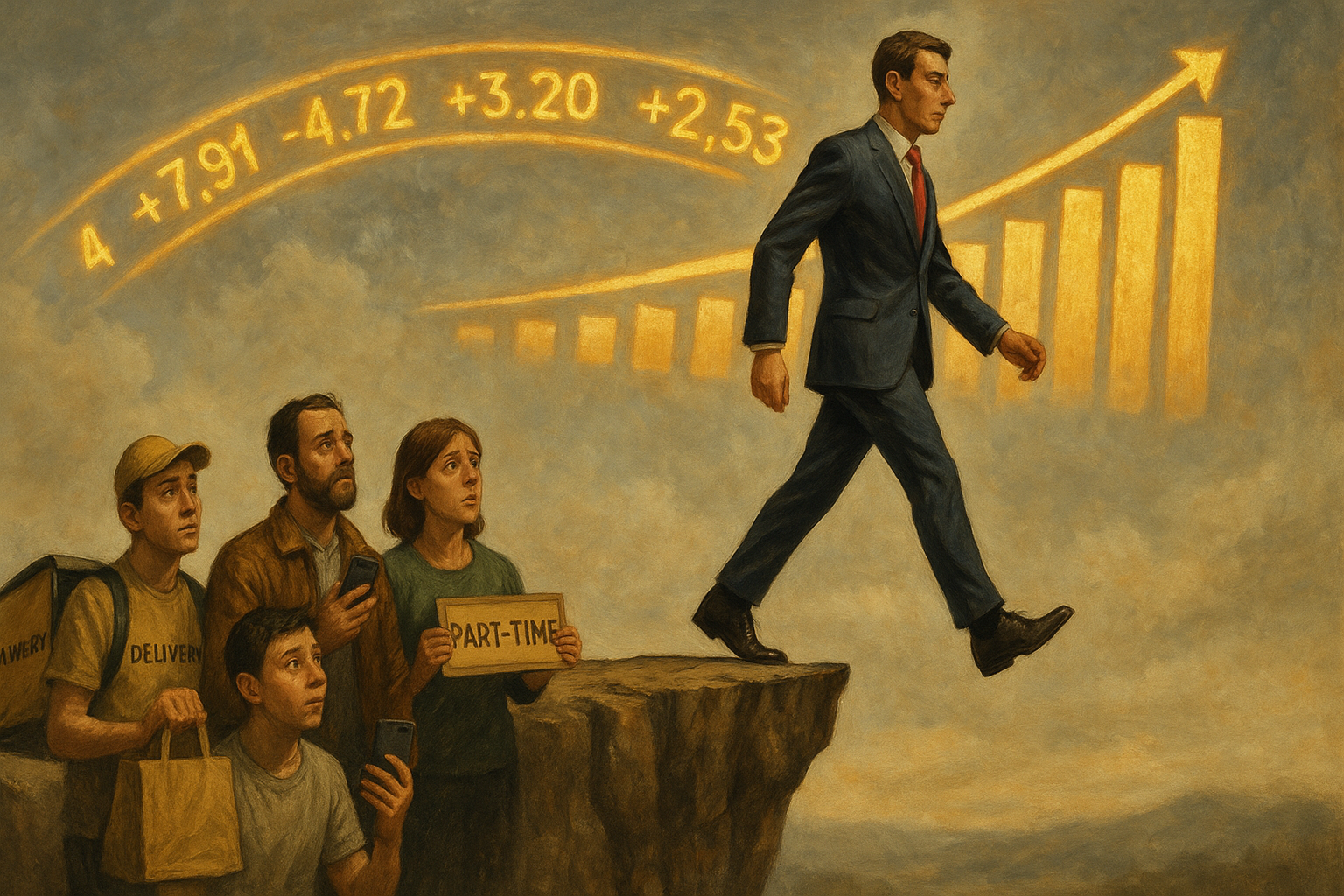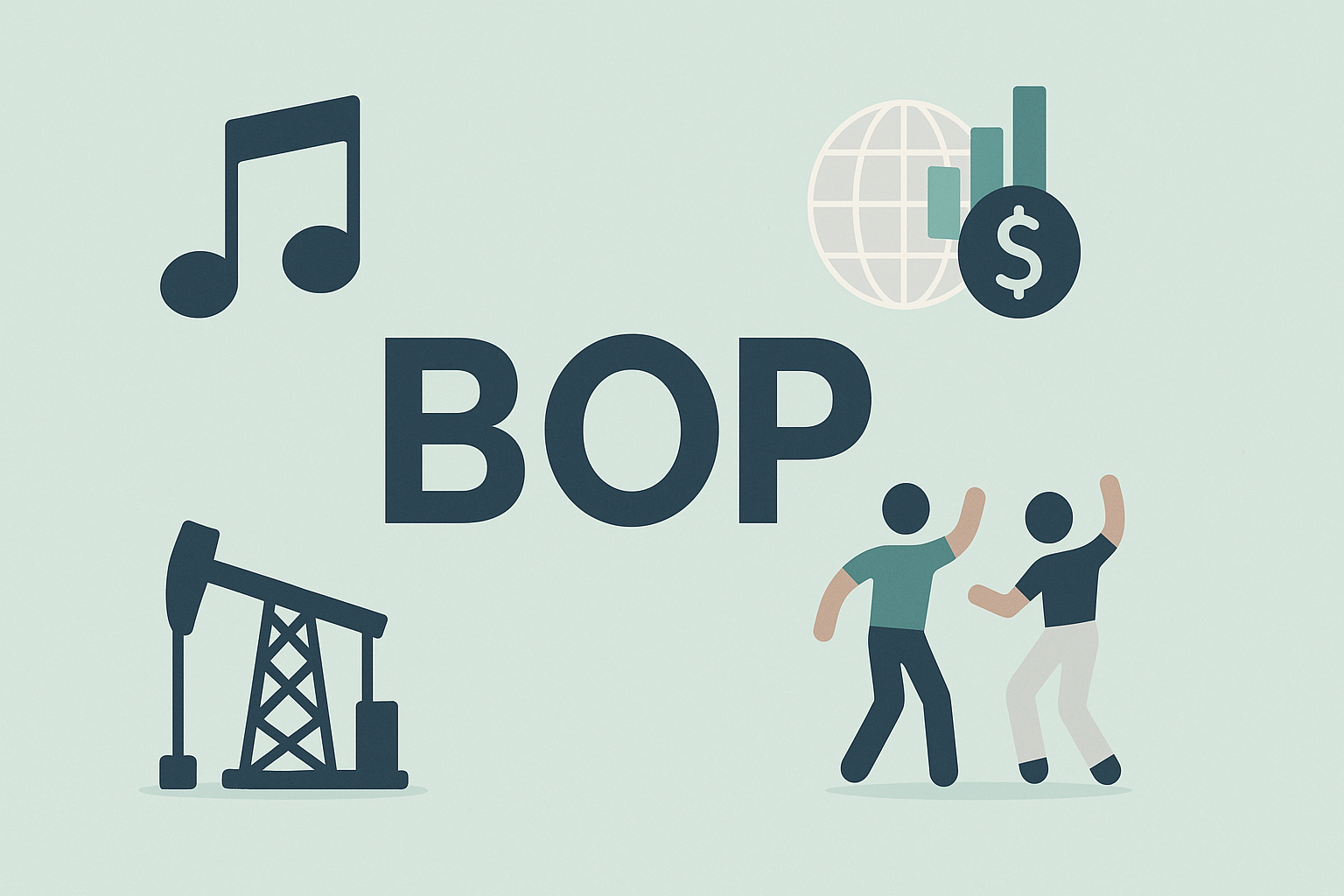The stock market these days reminds me of those cartoon characters who run off cliffs but don't immediately plummet. You know the ones—Wile E. Coyote suspended in mid-air, legs still churning, blissfully unaware of the long drop awaiting him once he looks down.
That's us right now. That's our economy.
I've been covering financial markets since before the 2008 crash, and I'm getting that same queasy feeling in my stomach. The disconnect between Wall Street euphoria and Main Street reality hasn't been this pronounced since... well, since right before things went spectacularly wrong last time.
The Magnificent Mirage
Let's be honest about something. When people talk about "the market" hitting new highs, they're really talking about a handful of tech giants—the so-called "Magnificent 7"—propping up indices like Atlas holding the world on his shoulders. These companies aren't just leading the market; they've practically become the market.
"The concentration risk is unprecedented in modern market history," a veteran fund manager told me last week over coffee (which, at $7 a cup, seemed its own commentary on inflation). "We're betting the farm on AI and a few tech monopolies."
Speaking of AI... isn't it curious how it's simultaneously going to eliminate millions of jobs AND somehow create unprecedented prosperity? That's quite the trick. It's like claiming the meteor that wiped out dinosaurs was actually a job-creation program for mammals. Technically true, I suppose.
And then there's Tesla.
Good lord, what can you say about a company whose value fluctuates by billions based on whatever random thought pops into its CEO's head at 2 a.m.? Despite Elon Musk's seeming determination to alienate, well, everyone on Earth, the stock continues its wild ride. Those promised robotaxis? Always just around the corner, like tomorrow in a musical—never actually arriving.
Unemployment Numbers: The Great Shell Game
Having tracked labor statistics for over a decade, I can tell you something doesn't add up in the employment figures.
The official numbers look rosy—if you don't peek behind the curtain. But dig deeper and you'll find a workforce increasingly cobbling together multiple part-time gigs with no benefits, job security, or path to advancement. We're counting jobs without asking whether they actually provide a living.
Last month I interviewed thirty workers in the so-called "gig economy." Not one had health insurance through their work. Not one could afford to take a sick day. Yet statistically, they're all employed! Success!
The labor market resembles a Jenga tower where economists keep removing crucial blocks while insisting the structure is more stable than ever. Look, I'm no physicist, but I know gravity eventually wins these arguments.
Geopolitical Shrugs
Remember when major geopolitical events would rattle markets for weeks? Now, conflicts that should theoretically rock the financial world barely register a blip.
The Iran-Israel tensions produced an oil price spike that lasted about as long as a TikTok video. Markets collectively yawned and moved on faster than audiences leaving a bad Adam Sandler movie.
(I should note that I attended an energy conference in Houston last month where several oil executives privately admitted they were baffled by the market's muted response to Middle East instability. "It's like we're living in an alternate reality," one confided.)
The Billionaire Reality Distortion Field
Meanwhile, tech billionaires increasingly behave like they're debugging society—treating complex human systems like problematic code that just needs a clever fix.
Companies like Palantir—what do they actually do? Something with data and government contracts and... surveillance? The details remain conveniently vague, even to shareholders who are apparently just along for the ride, no questions asked.
The tax breaks slipped into recent legislation will likely help the ultra-wealthy consolidate even more ownership. It's the great American tradition of upward wealth redistribution disguised as economic stimulus. Trickle-down economics is back, baby! Though the "trickle" part has always been the most accurate word in that phrase.
The Inevitable Reckoning
Here's the uncomfortable truth about market fundamentals: they're like gravity. You can ignore them for a while—sometimes a surprisingly long while—but eventually, they assert themselves.
The market can remain irrational longer than you can remain solvent, as Keynes reportedly said. But I'd add: economic reality can remain patient longer than markets can remain disconnected.
The real question isn't if the market will reconnect with economic reality, but when and how violently. Will it be a gentle docking maneuver or more like a belly flop from the high dive?
For those waiting to "buy the dip" with savings already depleted, or considering shorts despite previous burns, the market's resilience feels less like reassurance and more like taunting.
Is this 1989 all over again? 2008's unwanted sequel? Something entirely new? I've interviewed dozens of economists in recent months, and the consensus view seems to be... there is no consensus. We're in uncharted territory, which is financial-speak for "your guess is as good as mine, but my Wharton degree means I charge more for saying it."
Perhaps in these bizarre financial times, a bit of bewilderment is the most rational response. After all, when nothing makes sense, being confused might just be the most sensible reaction of all.
And that's something to think about next time you check your retirement account—which, if you're like me, will probably be in about five minutes.




